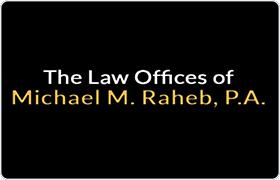Rotonda West RICO Act Lawyer, Florida
Sponsored Law Firm
-
 x
x

Click For More Info:
-
Law Offices of Michael M. Raheb P.A.
2423 First St Fort Myers, FL 33901» view mapCriminal Defense Law Legal Problem? Call Us 24/7
At the Law Office of Michael M. Raheb, we strive to ensure each of our clients receives the individual attention and representation necessary to obtain an optimal outcome.
800-890-8981
Not enough matches for Rotonda West RICO Act lawyer.
Below are all Rotonda West Criminal lawyers.
Richard Allen Ruhl
✓ VERIFIEDRichard Ruhl (Rick) grew up in Charlotte County and was admitted to practice in Florida in 2002, and has been in private practice in southwest Florida... (more)
Sean Michael Lux
✓ VERIFIEDI am a veteran of the United States Air Force and served as an Assistant State Attorney for over three years in both Lee and Charlotte County. During ... (more)
 Michael M. Raheb Fort Myers, FL
Michael M. Raheb Fort Myers, FL Practice AreasExpertise
Practice AreasExpertise


